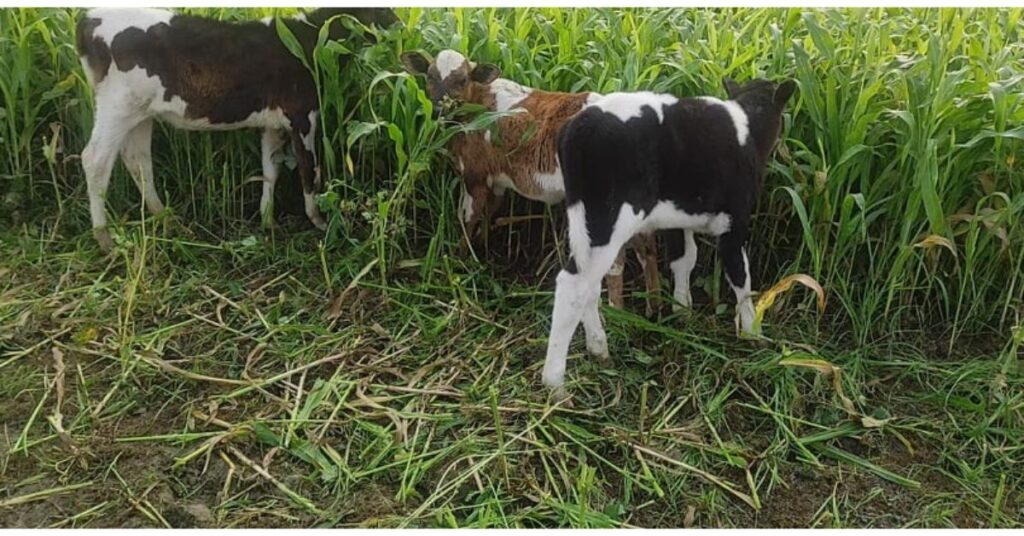Veterinarians’ Responsibilities in Animal Welfare
One of the main responsibilities of veterinarians in promoting animal welfare is to provide medical care and treatment to animals in need. Secondly, veterinarians also play a crucial role in preventing diseases and promoting overall health in animals. Thirdly, they assess the welfare of animals in various settings, such as farms, zoos, and research facilities. In addition, they take part in animal rescue and rehabilitation efforts. Finally, veterinarians also play a crucial role in educating the public about animal welfare. In conclusion, veterinarians are essential in safeguarding the welfare of animals.
Providing Medical Care and Treatment
First of all veterinarians promote animal welfare through providing medical care and treatment to animals in need. For this, they are trained to diagnose and treat a wide range of illnesses and injuries that animals may suffer from. Animal may suffer from a simple case of a common cold or a more complex disease. Even it may involve surgical procedure. Veterinarians are equipped to handle all the medical needs of animals.
Preventing Diseases
In addition to providing medical care, veterinarians also play a crucial role in preventing diseases and promoting overall health in animals. They administer vaccinations, conduct regular check-ups, and provide advice on nutrition and exercise. Veterinarians take a proactive approach to animal health. They help prevent the spread of diseases. And thus they ensure that animals are living in optimal conditions.
Animal Rescue and Rehabilitation
Another important aspect of a veterinarian’s role in animal welfare is their involvement in animal rescue and rehabilitation efforts. Many veterinarians work closely with animal shelters and rescue organizations. They provide veterinary care to abandoned or abused animals. They examine these animals, provide necessary treatments. Eventually they help them recover from their traumatic experiences.
Assessing Various Settings

Furthermore, veterinarians often assess the welfare of animals in various settings, such as farms, zoos, and research facilities. They evaluate the living conditions, handling practices, and overall well-being of the animals in these environments. Veterinarians identify if there are any concerns or violations. If identified, they make recommendations for improvements. They can take appropriate actions to ensure that the animals are being treated humanely.
Educating Public About Animal Welfare
Veterinarians also play a crucial role in educating the public about animal welfare. Providing guidance on responsible pet ownership is one of the crucial task of a veterinarian. They guide for proper nutrition, exercise, and preventive care. They also raise awareness about animal welfare issues, such as animal cruelty and neglect. It’s obvious veterinarians advocate for stronger laws and regulations to protect animals.
In conclusion, veterinarians are essential in safeguarding the animal welfare. Through their expertise in animal health, they involve in medical care, disease prevention, rescue efforts, welfare assessments, and public education. Veterinarians make a significant impact on the well-being of animals in our society.
Assessing Animal Welfare
One of the primary responsibilities of veterinarians is to assess the welfare of animals. They observe and evaluate various factors that contribute to the overall well-being of the animals. These factors include physical health, behavior, living conditions, and access to essential resources such as food, water, and shelter.
Identifying Animals’ Illness Using Medical Expertise
Veterinarians use their medical expertise to identify signs of distress, illness, or injury in animals. They also consider the animal’s behavior and body language. Thus they try to understand their emotional state and level of comfort. They conduct this thorough examinations and assessments. Veterinarians can determine the overall welfare status of an animal and identify any areas that need improvement.
Examining Physical Health of Animals
Physical health is a crucial aspect of animal welfare. Veterinarians carefully examine the animal’s body condition. They look for the signs of malnutrition, dehydration, or physical injuries. In addition, veterinarians measure animals heart rate, respiratory rate, and body temperature to ensure they are with normal ranges. Any abnormalities in these parameters can indicate underlying health issues that require attention.
Assessing Animals’ Behavioral Status
Behavioral assessments are equally important in evaluating animal welfare. Veterinarians observe the animal’s behavior and interactions with their environment and other animals. They look for signs of fear, aggression, or abnormal behaviors. These abnormalities indicate stress or psychological distress. By understanding an animal’s behavior, veterinarians can make recommendations to improve their mental well-being and address any potential behavioral issues.
Assessing Animals’ Living Environment
Living conditions play a significant role in animal welfare. Veterinarians assess the animal’s housing environment. Here they consider factors such as space, cleanliness, ventilation, and temperature control. They ensure that animals have access to appropriate shelter to protect them from extreme weather conditions. Additionally, veterinarians evaluate the social environment of animals kept in groups. They find out whether the animals have adequate space and compatible companionship.

Assessing the Resources Provided to Animals
Access to essential resources is another critical aspect of animal welfare. Veterinarians assess the availability and quality of food and water provided to animals. They ensure that animals have access to a balanced diet that meets their nutritional needs. Veterinarians also evaluate the availability of clean and fresh water. Dehydration can have severe consequences on an animal’s health and well-being.

In conclusion, veterinarians play a vital role in assessing animal welfare. Through their expertise, they evaluate the physical health, behavior, living conditions, and access to essential resources of animals. They conduct it thorough examinations and assessments. Veterinarians can identify any areas that need improvement and provide recommendations to enhance the overall welfare of animals.
Providing Recommendations for Improvement
Once veterinarians have assessed the welfare of an animal, they can provide recommendations to improve it. These recommendations may involve changes to the animal’s environment, diet, exercise routine, or medical treatment. Veterinarians also educate animal owners and caregivers on proper animal care and welfare practices.
Diet and Exercise for Animals
For example, a veterinarian observes that a dog is overweight and lacking exercise. He may recommend a specific diet and exercise plan to help the dog achieve a healthy weight. This plan could include reducing the dog’s caloric intake, increasing the amount of physical activity, and monitoring the dog’s progress over time. Additionally, the veterinarian may suggest incorporating interactive toys or puzzle feeders to provide mental stimulation while the dog exercises.
Better living Condition of Animals
Very often veterinarians notice that an animal’s living conditions are inadequate. They may suggest modifications to the animal’s environment to provide better stimulation and enrichment. This could include adding scratching posts, climbing trees, or interactive toys to encourage natural behaviors and prevent boredom. The veterinarian may also advise on litter box placement, cleanliness, and the importance of providing multiple litter boxes in multi-cat households.
Prevention and Treatment of Animal Diseases
Veterinarians also play a crucial role in preventing and treating diseases and injuries that can impact animal welfare. They administer vaccinations to protect animals from infectious diseases and provide preventive treatments for parasites such as fleas, ticks, and heartworm. In several cases an animal is injured or becomes ill. Veterinarians perform surgeries, prescribe medications, and provide ongoing medical care to ensure the animal’s well-being.
Routine Wellness Examinations
Furthermore, veterinarians may recommend routine wellness exams. The routine wellness exams are necessary to monitor the overall health of animals and detect any potential issues early on. These exams may include physical examinations, blood tests, and other diagnostic procedures to assess the animal’s organ function and overall condition. By identifying and addressing health concerns promptly, veterinarians can prevent suffering and improve the quality of life for animals.
In summary, veterinarians not only assess animal welfare but also provide comprehensive recommendations for improvement. Their expertise in nutrition, behavior, and medical care allows them to create personalized plans to address specific needs and enhance the well-being of animals. Through education and preventive measures, veterinarians play a vital role in promoting animal welfare. Veterinarians help in ensuring the health and happiness of our beloved pets.
Advocating for Animal Welfare
In addition to their direct involvement in improving animal welfare, veterinarians also serve as advocates for animals. They have a deep understanding of the needs and rights of animals. They use their knowledge and expertise to raise awareness about animal welfare issues.
Public Education and Campaigns
Veterinarians may participate in public education campaigns to promote responsible pet ownership, humane treatment of animals, and the importance of spaying and neutering. They may also collaborate with animal welfare organizations and government agencies to develop and implement policies and regulations that protect animals and ensure their well-being.
Expert Opinion and Testimony in Legal Case
Furthermore, veterinarians may be called upon to provide expert testimony in legal cases involving animal abuse or neglect. Their professional opinion and expertise can help ensure that justice is served and that the welfare of animals is prioritized.
Shaping Public Opinion and Policy
As advocates, veterinarians play a crucial role in shaping public opinion and policy regarding animal welfare. They may write articles and give interviews to local and national media outlets. They can also share their insights and experiences to shed light on the importance of treating animals with compassion and respect. By using their platform to educate the public, veterinarians can influence attitudes and behaviors towards animals, ultimately leading to positive change.
Supporting Legislation Against Cruelty and Abuse
Moreover, veterinarians may also engage in lobbying efforts to support legislation that protects animals from cruelty and abuse. They work closely with lawmakers and policy influencers to draft and promote bills that address animal welfare concerns, such as banning puppy mills, improving conditions in factory farms, and prohibiting the use of animals in entertainment industries.
Collaboration with other Professionals
In their advocacy efforts, veterinarians often collaborate with other professionals, including animal behaviorists, biologists, and environmentalists. By joining forces, finally, they can leverage their collective expertise and resources to create impactful campaigns and initiatives that raise awareness and drive change.
Research and Continuing Education
Additionally, veterinarians may be involved in research projects focused on animal welfare. They conduct studies to better understand the physical and psychological needs of different animal species. They develop evidence-based guidelines for their care. Through their research, veterinarians contribute to the body of knowledge on animal welfare. They can provide valuable insights that can inform policies and practices.
Furthermore, continuing education is a crucial aspect of a veterinarian’s career. By attending conferences, workshops, and seminars, veterinarians have the opportunity to interact with experts in their field. As a result, they learn about the latest advancements in animal welfare. These events often feature renowned speakers who share their knowledge and expertise. Veterinarians become enriched with valuable insights into cutting-edge techniques, treatments, and best practices in animal care.
In addition to continuing education, veterinarians actively contribute to research efforts focused on improving animal welfare. They design and conduct studies that investigate various aspects of animal health, behavior, and well-being. Through these studies, veterinarians collect data and analyze information to gain a better understanding of the factors that influence the quality of life for animals. By the researches, they can develop innovative solutions for improving animal welfare.
Last of all, research conducted by veterinarians plays a crucial role in informing the development of new protocols, guidelines, and standards for animal care. By identifying gaps in current practices and exploring innovative approaches, veterinarians contribute to the ongoing improvement of animal welfare. Their research findings are often published in scientific journals. This allows other professionals in the field to access and build upon this knowledge.
Worldwide Networking with Colleagues
Furthermore, these educational opportunities allow veterinarians to network with colleagues from around the world. They can exchange ideas and experiences. As a result, they can gain different perspectives and collaborate on research projects or initiatives aimed at improving animal welfare. This collaboration enhances their own knowledge and skills. It also contributes to the collective efforts of the veterinary community. It helps advancement in this field.
Collaboration with Other Scientific Disciplines
Moreover, veterinarians may collaborate with other scientific disciplines, such as biologists, ecologists, and psychologists. Thus a comprehensive understanding of animal welfare can be gained. This interdisciplinary approach enables them to explore the complex interactions between animals and their environment. Finally, it also help understand the psychological and emotional well-being of animals.
Overall, veterinarians play a multifaceted role in advocating for animal welfare. Through their direct involvement, public outreach, legal support, and research contributions, they work tirelessly to improve the lives of animals and create a more compassionate society for all creatures.


Great delivery. I wish your great success.
Thanks a lot. Wish you all the best
Excellent Writting
Thank you dear R N Paul
I have gone through the title and sub titles. Found nice construction. However, it might need some update, frequently. All the best.
A lot of thanks for your nice advice. Wish you all the best